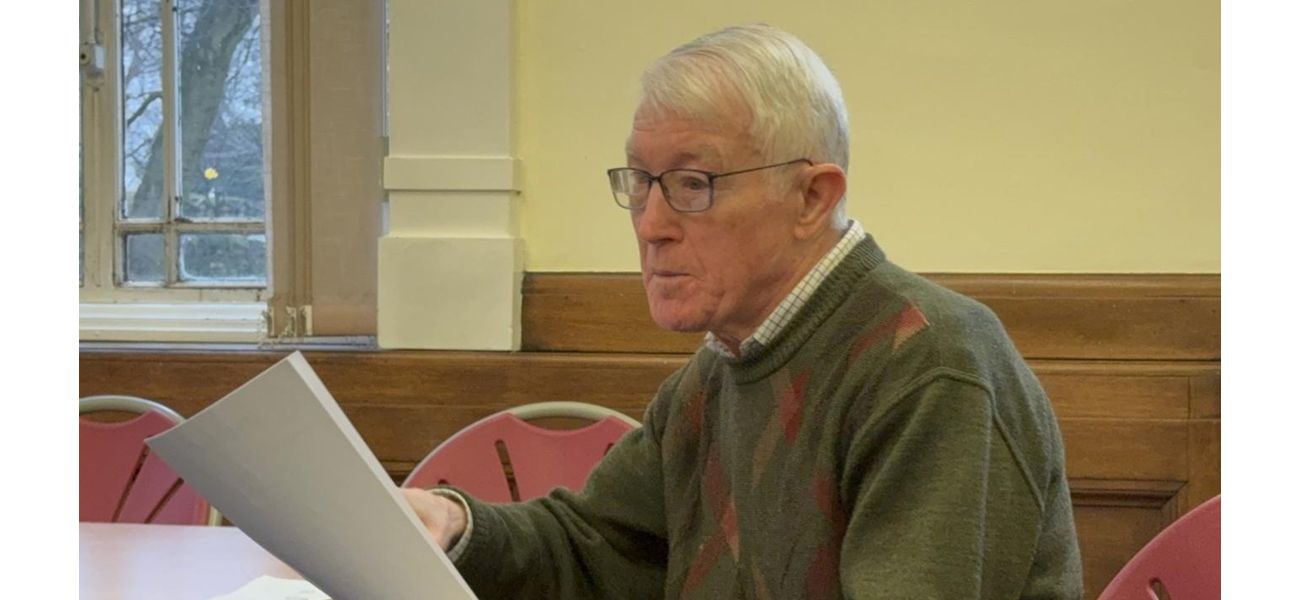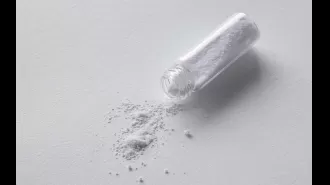An 80-year-old man is working to revive a 1,000-year-old British language.
"Taking action is better than avoiding it altogether."
September 1st 2024.

Meet Rod Dimbleby, the dedicated chairman of the Yorkshire Dialect Society. His passion and mission? To preserve the beloved accent of Yorkshire. As he puts it, "Muck goas to t’middin an it’s reight place for it." Now, for those unfamiliar with the dialect, that translates to "Dirt goes to the dunghill and that’s the right place for it," written in an ancient Yorkshire dialect.
But don't worry if you can't make sense of it all. Even native speakers might not understand every word. That's why Rod is on a mission to keep the dialect alive by teaching it in schools. As much as he loves the traditional phrases and words that have been passed down for over 1,000 years, he knows they are slowly disappearing from everyday conversation.
In fact, Rod believes that learning the Yorkshire dialect should be just as important as learning a foreign language. He already holds weekly lessons on the vernacular, which has gained popularity through shows like Last Of The Summer Wine and even in the lyrics of the Arctic Monkeys' hit song, "Mardy Bum." But he fears that the authentic dialect is only spoken in a few isolated pockets of Yorkshire nowadays.
To give you a glimpse of the unique vocabulary, here are a few phrases that could be taught in schools: "Baht ‘at" means "without a hat," "Put wood in t’ole" is a polite way to ask someone to close the door, "Tha’s reyt Mardy" is a way of saying "you're not in a particularly good mood today," "You daft ‘apeth" means "you fool," "Eeh by gum" is an expression of surprise or emphasis, "Mither" means to bother or annoy, and "Bairn" is another word for child or baby.
Rod firmly believes that the Yorkshire dialect should be celebrated and passed down to future generations. As he says, "This is a part of our cultural heritage, something that anyone born or growing up in Yorkshire has every reason to be proud of." And he's not alone in this sentiment. He hopes that schools will start incorporating the dialect into their curriculum or at least offer it as an after-school activity.
Now, you might be wondering, what exactly is the Yorkshire dialect? Well, with such a large county, there is no single "Yorkshire dialect," but rather various ways in which people in Yorkshire speak. However, there are some common threads, such as a tendency to add the letter "t" to words. "You" might become "ye," "thee," or "thou." "Something" and "nothing" are often pronounced as "owt" and "nowt." This can be traced back to the roots of the dialect, which stem from Old English and Old Norse.
Another interesting aspect of the dialect is its tendency to shorten words and syllables. "Happen" becomes "appen" and "how are you" becomes "ow do." If you're curious to learn more, you can visit the society's website for some examples of Yorkshire dialect. For example, "It’s better to fettle an shaht abaht it nor nivver to fettle at all" translates to "It’s better to do something and shout about it than never to do it at all."
For Rod, preserving the dialect is a personal mission. Having grown up in Bradford, he was surrounded by the dialect from a young age. And he's not alone in this experience. As he explains, "It’s because the working class continued speaking dialect that people often wrongly associate it with being uneducated or confuse it with slang." But, as he is quick to point out, the dialect is a real language, with roots in the Germanic languages and phrases influenced by the Industrial Revolution.
Rod is grateful to have been raised bilingual, speaking both Yorkshire dialect and English. And now, he's sharing his knowledge and love for the dialect through the Talk Tyke Course, which covers speaking, listening, reading, and writing skills. And it seems to be making an impact, as the society has seen a spike in new members since the first course.
So, if you're interested in learning more about the Yorkshire dialect, keep an eye out for upcoming courses in Keighley, Brighouse, Cleckheaton, and Leeds. As Rod says, "I'm fortunate to have been brought up bilingual speaking Yorkshire dialect and English." And with his dedication and passion, the dialect will hopefully continue to thrive for generations to come.
But don't worry if you can't make sense of it all. Even native speakers might not understand every word. That's why Rod is on a mission to keep the dialect alive by teaching it in schools. As much as he loves the traditional phrases and words that have been passed down for over 1,000 years, he knows they are slowly disappearing from everyday conversation.
In fact, Rod believes that learning the Yorkshire dialect should be just as important as learning a foreign language. He already holds weekly lessons on the vernacular, which has gained popularity through shows like Last Of The Summer Wine and even in the lyrics of the Arctic Monkeys' hit song, "Mardy Bum." But he fears that the authentic dialect is only spoken in a few isolated pockets of Yorkshire nowadays.
To give you a glimpse of the unique vocabulary, here are a few phrases that could be taught in schools: "Baht ‘at" means "without a hat," "Put wood in t’ole" is a polite way to ask someone to close the door, "Tha’s reyt Mardy" is a way of saying "you're not in a particularly good mood today," "You daft ‘apeth" means "you fool," "Eeh by gum" is an expression of surprise or emphasis, "Mither" means to bother or annoy, and "Bairn" is another word for child or baby.
Rod firmly believes that the Yorkshire dialect should be celebrated and passed down to future generations. As he says, "This is a part of our cultural heritage, something that anyone born or growing up in Yorkshire has every reason to be proud of." And he's not alone in this sentiment. He hopes that schools will start incorporating the dialect into their curriculum or at least offer it as an after-school activity.
Now, you might be wondering, what exactly is the Yorkshire dialect? Well, with such a large county, there is no single "Yorkshire dialect," but rather various ways in which people in Yorkshire speak. However, there are some common threads, such as a tendency to add the letter "t" to words. "You" might become "ye," "thee," or "thou." "Something" and "nothing" are often pronounced as "owt" and "nowt." This can be traced back to the roots of the dialect, which stem from Old English and Old Norse.
Another interesting aspect of the dialect is its tendency to shorten words and syllables. "Happen" becomes "appen" and "how are you" becomes "ow do." If you're curious to learn more, you can visit the society's website for some examples of Yorkshire dialect. For example, "It’s better to fettle an shaht abaht it nor nivver to fettle at all" translates to "It’s better to do something and shout about it than never to do it at all."
For Rod, preserving the dialect is a personal mission. Having grown up in Bradford, he was surrounded by the dialect from a young age. And he's not alone in this experience. As he explains, "It’s because the working class continued speaking dialect that people often wrongly associate it with being uneducated or confuse it with slang." But, as he is quick to point out, the dialect is a real language, with roots in the Germanic languages and phrases influenced by the Industrial Revolution.
Rod is grateful to have been raised bilingual, speaking both Yorkshire dialect and English. And now, he's sharing his knowledge and love for the dialect through the Talk Tyke Course, which covers speaking, listening, reading, and writing skills. And it seems to be making an impact, as the society has seen a spike in new members since the first course.
So, if you're interested in learning more about the Yorkshire dialect, keep an eye out for upcoming courses in Keighley, Brighouse, Cleckheaton, and Leeds. As Rod says, "I'm fortunate to have been brought up bilingual speaking Yorkshire dialect and English." And with his dedication and passion, the dialect will hopefully continue to thrive for generations to come.
[This article has been trending online recently and has been generated with AI. Your feed is customized.]
[Generative AI is experimental.]
0
0
Submit Comment





